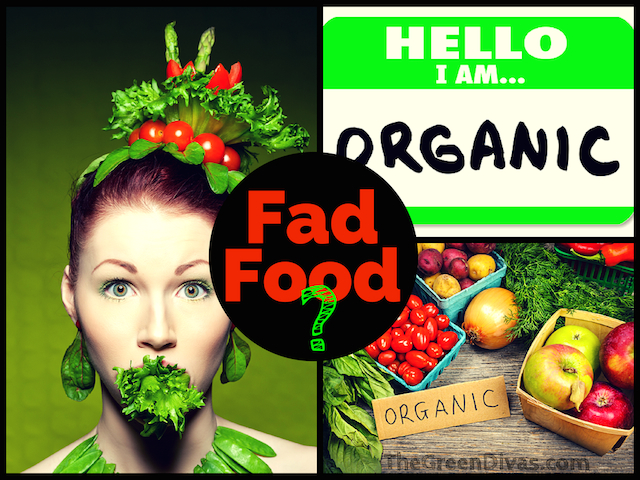Ed. Note: We at The Green Divas believe in organic food and support continued vigilance in upholding strong standards to help keep the organic label “organic” and safer for us, the farmers, the animals and the planet. A recent study found higher antioxidant and lower cadmium concentrations and lower incidence of pesticide residues in organically grown crops. We need to expand organic food through ALL suppliers and while it isn’t perfect for Walmart or Costco to be offering this stuff, it IS creating new standards for industrial farmers. We don’t love industrial farming or Walmart, but good organic standards upheld by these types of producers will have a positive impact on our environment and our overall health.
Written by Ari Leveaux for OUTSIDE Magazine.
With mega-grocers like Walmart and Target investing big in organics, does the word really mean anything anymore?
Walmart, already one of the country’s largest distributors of organic foods, will gobble up additional market share this summer, thanks to a deal it struck with Wild Oats to carry more than 100 of the natural-food chain’s house-branded products.
The agreement, coming on the heels of Target’s Simply Balanced line, which is 40 percent organic, marks a new era. One obvious benefit is that prices for organic foods should drop nationwide as production increases and competitors are forced to match big-box discounts.
But the supersizing of organic comes at a cost.
When the term first gained traction, in the 1980s, it was mainly used by small farms supplying local markets. In 2000, when the Department of Agriculture created the USDA Organic label, its standards included a list of roughly 100 substances, including some synthetic chemicals, that would be allowed in the farming process. The list is picked over incessantly, but in September of last year, the USDA made it more difficult to remove pesticides and herbicides it had already approved.
All of which means that, for consumers, shopping is more complex than ever.
Straight Talk on the Organic Frenzy
“It’s better for you”
Not necessarily. Thousands of studies show no clear consensus on the nutritional benefits of organic over conventional foods. However, a recent study found fewer pesticide residues; higher antioxidant and lower cadmium concentrations; and fewer antibiotic-resistant bacteria in organic foods.
“It’s better for the environment”
True. Studies show that organically farmed soil has greater microbial diversity, in large part because of crop rotation, cover crops, and the use of compost, required for certification. Organic crops usually have greater drought tolerance.
“It’s better for the animals”
Probably. There is no conclusive evidence that organic meat or dairy is healthier, but most animals are required to have access to pasture and are exposed to far fewer antibiotics.
“It’s better for the farmers”
Definitely. Laborers on conventional farms are exposed to hundreds more agrichemicals than those on organic farms. Consequences range from headaches to birth defects to cancer.
The Local-Versus-Organic Question
In terms of nutrient value, fresh almost always trumps organic, which is why local is usually better. But a local farmer could be spraying his crops with every chemical in the book. Don’t stress out about which chemicals to avoid.
Find a farmer you can trust and ask if the produce is certified organic. If he says yes but his stand isn’t labeled, be skeptical. If he says no but is eager to talk about how he grows his crops, that’s probably the best indicator. The certification process is time consuming and expensive, and many local vendors skip it.
Bonus:
Check out this Green Divas Foodie Phile segment that’s all about organic eggs!
Asst. Ed.~ Green Diva Amanda | images via shutterstock
